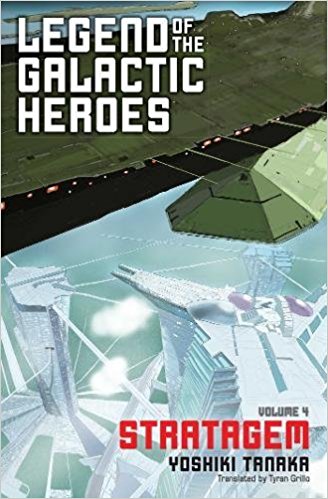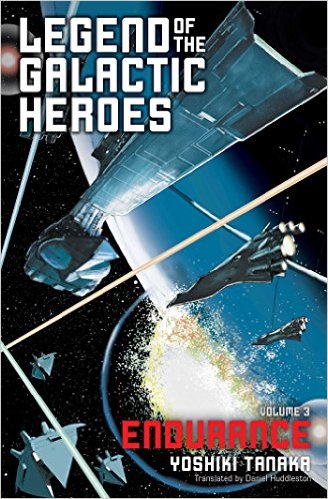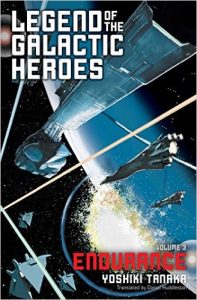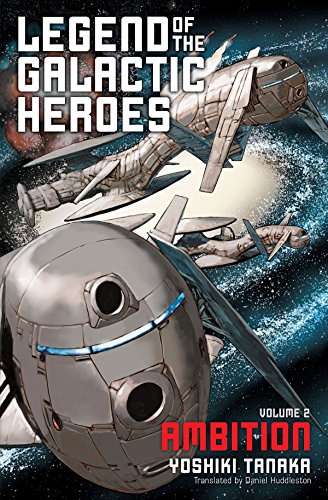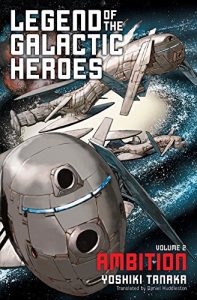By Yoshiki Tanaka. Released in Japan as “Ginga Eiyū Densetsu” by Tokuma Shoten. Released in North America by Haikasoru. Translated by Tyren Grillo.
Well, I did ask for more politics, and we get it here, though there’s not really a lot of political backroom dealing. Instead, what we get is Reinhard sitting back, letting everyone else hang themselves, and then strolling in and taking everything over. I’m still not quite sure we’re supposed to like Reinhard or not, and certainly his casual lack of empathy as he sacrifices people for his own ends can be chilling, but there’s no doubt that at the end of the day he can make the decisions that lead to the Empire gaining power, whereas Yang Wen-Li is never going to be that person (much to Yang’s own relief, I suspect). It can be a bit uncomfortable to read – “what if the Space Nazis were the best option?” is essentially where were’ going with this current plot – but it’s certainly fascinating.
Yang in particular is not having a very good book. He’s back at his Death Star, but the fight that comes to him is just a diversion, and he knows it. Moreover, Julian has been transferred away from him , and though Yank knows that right now it’s the best thing to do, particularly as he needs someone he can trust on Phezzan, it’s not doing wonders for his psyche. Julian is not only the son he never had, but also his minder, and Yang is now required to do things like wake himself up. The horror! Sadly, while Yang can figure out exactly what’s going to happen, he can’t do much to stop it – indeed, the first third or so of the book doesn’t even have him in it. Julian does get to be awesome when he gets to Phezzan, but it’s preventing further damage control more than anything else.
Speaking of Phezzan, the trouble with trying to play both sides against each other in a never-ending war while you sit back and make money off of it is that sooner or later you may get called out by one of the sides. The scenes where The kidnapping of the emperor occur are probably the most amusing in the book, as Reinhard solves almost all his problems by literally doing nothing, allowing the resistance to escape with the World’s Brattiest Emperor, a 7-year-old child with no impulse control and a tendency to bite. This of course gives Reinhard a good excuse to send every ship he has to attack the Alliance, and install an 8-month-old girl on the throne as the new emperor. Even his enemies are sitting back and staring at how much everything just comes together for Reinhard here.
You may notice we have a new translator, though I didn’t see any appreciable difference in quality. A lot of the time Legend of Galactic Heroes is written like a musty old history textbook, and that comes across very well here, though it may annoy some people not used to this sort of narrative. Legend of Galactic Heroes is never going to be a series that inspires obsessive love, but it is noble and staid, and wears its empire building on its sleeve. We’ll see how the chips fall next time. And will Reinhard and Yang ever meet face to face?
Oh yes, and Rupert dies, probably because he’s in a Wagnerian novel series and his name is Rupert.
